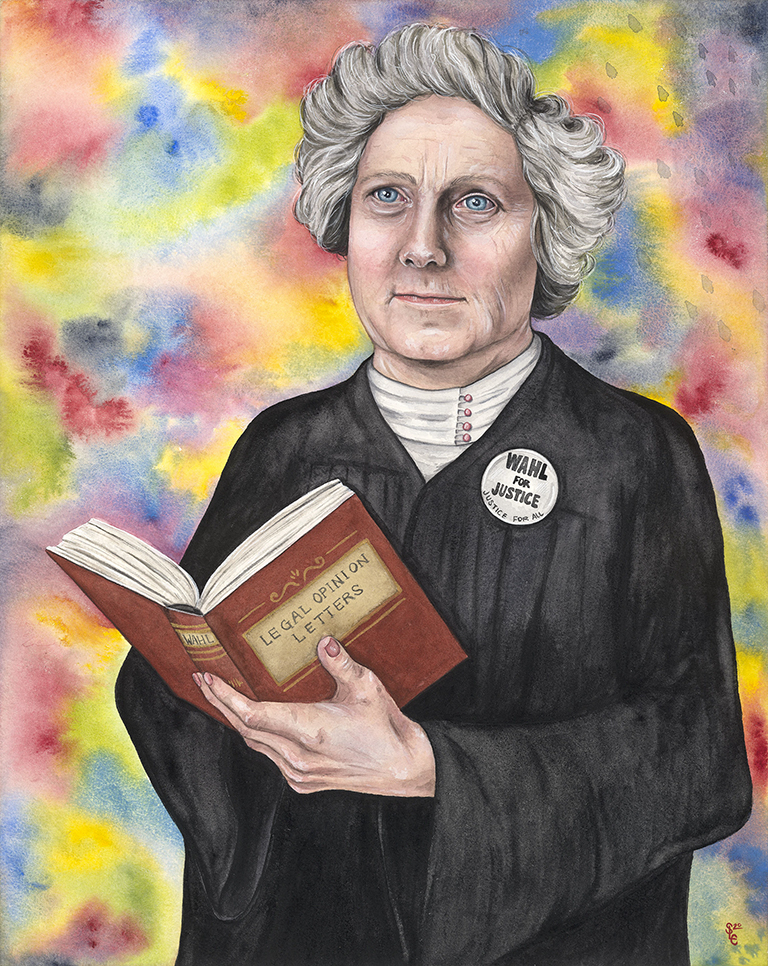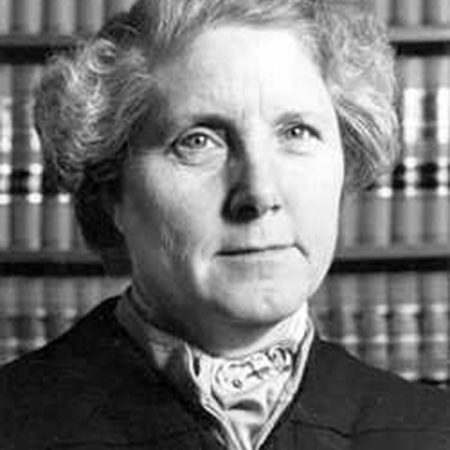In the 1970s, DFL women began to organize and work for more women to be appointed in government. They set their sights on getting a woman appointed to the Minnesota Supreme Court. This would allow them to last beyond the current governor.
Rosalie Wahl (1924-2013) was the first woman on the State Supreme Court. Born in Kansas, she entered the University of Kansas in 1942. While there, she helped establish an interracial housing co-op. After graduating in 1946, she married and moved to Minnesota in 1949. In 1962, she enrolled in William Mitchell College of Law at the age of thirty-eight, in part because she said that she “was tired of sitting outside doors and waiting for men to make the decisions.” Upon graduating and passing the bar, she worked as an assistant public defender. In 1972, she taught criminal law at William Mitchell and at the University of Minnesota School of Law.
Wahl was appointed to the Minnesota State Supreme Court by Governor Rudy Perpich in 1977. Perpich later said one of the reasons he appointed Wahl was that he was convinced she would be able to win the political campaign to keep her seat. Wahl served as liaison to the court’s Study Commission on the Mentally Disabled. She also chaired its task forces on gender fairness and racial bias. Each of these assignments brought significant change to the judicial system in Minnesota. She was known for leading efforts to address both gender fairness and racial bias in the judicial system until 1992 when she retired.
In 2020, four of the seven justices on the Minnesota Supreme Court were women, Lorie S. Gildea (Chief Justice), Anne K. McKeig (Justice), Natalie E. Hudson (Justice), and Margaret H. Chutich (Justice).
Minnesota has had nine women serve as lieutenant governor, starting with Marlene Johnson in 1983, but a woman has never been elected governor. In 2018, Minnesota elected Peggy Flanagan, its current lieutenant governor and the first Ojibwe person to be elected to State-wide office in Minnesota.
Featured image: Rosalie Wahl.

Rosalie Wahl
Stacey Combs
Watercolor, 2020
